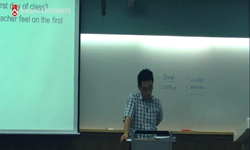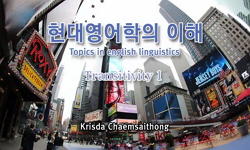This study analyzed the meaning and argumentation of the freedom of speech appearing in the editorials and columns of the Kyeonghyang Newspaper and the Dong-A Daily Newspaper from 1948 to 1962. In the South Korean society, the discussions on this era,...
http://chineseinput.net/에서 pinyin(병음)방식으로 중국어를 변환할 수 있습니다.
변환된 중국어를 복사하여 사용하시면 됩니다.
- 中文 을 입력하시려면 zhongwen을 입력하시고 space를누르시면됩니다.
- 北京 을 입력하시려면 beijing을 입력하시고 space를 누르시면 됩니다.

50, 60년대 신문의 언론 자유 논증에 대한 담화 연구 = A discourse study for argumentation on freedom of speech in the South Korean newspapers in 1950-1960s
한글로보기https://www.riss.kr/link?id=A105813765
- 저자
- 발행기관
- 학술지명
- 권호사항
-
발행연도
2018
-
작성언어
Korean
- 주제어
-
등재정보
KCI등재
-
자료형태
학술저널
- 발행기관 URL
-
수록면
1-30(30쪽)
- DOI식별코드
- 제공처
- 소장기관
-
0
상세조회 -
0
다운로드
부가정보
다국어 초록 (Multilingual Abstract)
This study analyzed the meaning and argumentation of the freedom of speech appearing in the editorials and columns of the Kyeonghyang Newspaper and the Dong-A Daily Newspaper from 1948 to 1962. In the South Korean society, the discussions on this era, in which the democratic republic was commenced, conceptualized the meaning of the freedom of speech, and had a large effect on today’s perception on the freedom of speech. This paper analyzed the discussions by using practical argumentation, which is one of methods used recently for critical discourse studies. At the time, the freedom of speech was not sufficiently guaranteed, and the system and laws that can guarantee it were not in place yet. The discourses of the freedom of speech showed complex aspects whereby amidst argumentations claiming the guarantee of the freedom of speech, arguments for restricting it were intersecting. Furthermore, other arguments such as fairness of journalism, journalist ethics, or national security were met. Through this analysis, we can understand how today’s perception on the freedom of speech was formed. For a long time, the freedom of speech was perceived narrowly in the media’s freedom and norms. The disappearance of arguments since 1960s left large tracks by taking opportunities away from the society for discussion and reasoning on the freedom of speech, rather than the freedom of speech itself. Hence, the freedom of speech will not be recovered in the state of disappeared oppression only. A greater freedom of everyone will be completely obtained through debates on the arguments that restricted the freedom, and more fierce reasoning for the fairness.
목차 (Table of Contents)
- 1. 서론
- 2. 연구방법과 대상
- 3. 언론 자유의 논증 전개 양상
- 4. 맺음말
- 참고문헌
- 1. 서론
- 2. 연구방법과 대상
- 3. 언론 자유의 논증 전개 양상
- 4. 맺음말
- 참고문헌
동일학술지(권/호) 다른 논문
-
- 담화·인지언어학회
- 김효신(Kim, Hyosin)
- 2018
- KCI등재
-
- 담화·인지언어학회
- 서강보(Seo, Kangbo)
- 2018
- KCI등재
-
Language Contact and Grammaticalization
- 담화·인지언어학회
- Mikyung Ahn(안미경)
- 2018
- KCI등재
-
Stance Expressions in Korean Students’ Writing in English
- 담화·인지언어학회
- Hye-Kyung Lee
- 2018
- KCI등재




 KCI
KCI DBpia
DBpia







